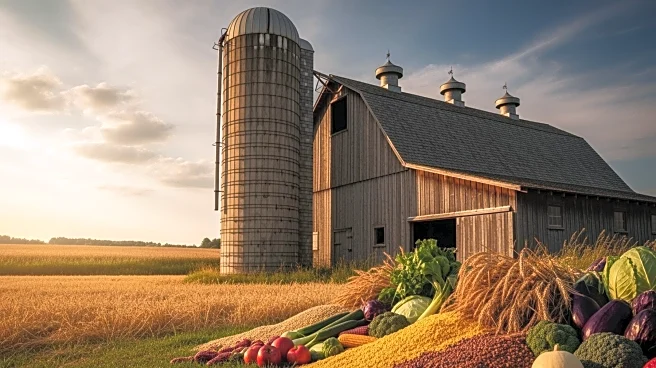What's Happening?
Farmers in Iowa are facing significant challenges due to rising costs and new international trade policies. Dave Mulhbauer, a fifth-generation farmer, highlights the increased prices of equipment, fertilizer,
and other essential farming supplies, which are squeezing profit margins. The imposition of tariffs has exacerbated these issues, leading to uncertainty in the agricultural sector. Mulhbauer notes that the lack of markets for selling soybeans and the plan to import beef from Argentina are particularly concerning, as they threaten the viability of local farms and the broader rural economy.
Why It's Important?
The challenges faced by Iowa farmers have broader implications for the U.S. agricultural industry and rural communities. As profit margins shrink, farmers may struggle to sustain their operations, potentially leading to job losses and economic downturns in rural areas. The importation of beef from Argentina could further undermine local producers, affecting the domestic beef market. These developments highlight the need for policies that support local agriculture and address the concerns of farmers regarding trade and labeling.
What's Next?
Farmers like Mulhbauer are advocating for changes in trade policies and the implementation of country of origin labeling to protect local agricultural interests. The response from policymakers and trade negotiators will be crucial in determining the future of the agricultural sector. Stakeholders in the industry may push for legislative changes to mitigate the impact of tariffs and ensure fair competition for U.S. farmers.
Beyond the Headlines
The situation underscores the cultural and economic significance of generational farms in the U.S. Losing these farms could lead to a loss of heritage and identity in rural communities. The debate over trade policies also raises ethical questions about the balance between global trade and local economic sustainability.











